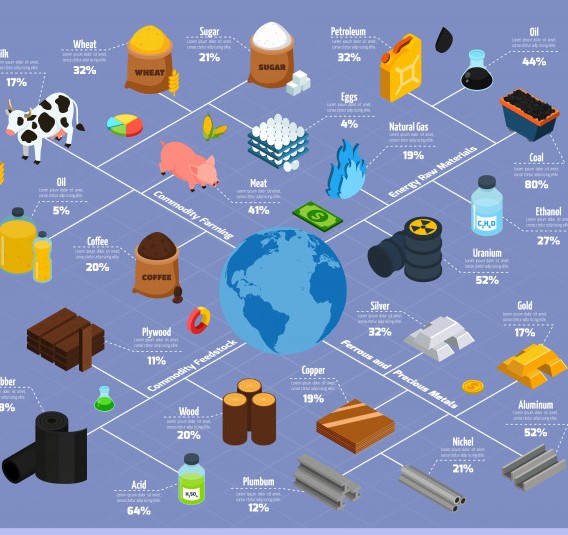Types of Investments
Knowing the spectrum of investments thoroughly is an important factor in the investment game. And the spectrum is so wide it may not be possible to keep track of all the avenues of investments available to you to make an investment decision. You should have good knowledge of all aspects of the investment tools such as
Who are offering you these items?
what are the main features like the return offered, the duration of investment?
Is the return on investment guaranteed or variable?
what are the eligibility criteria?
what is the degree of risk involved in this investment?
Before going into above details let’s recapture what we have learnt about investments in nutshell. We have already seen that investment is purchasing an asset with the intention of deriving income or getting a profit. Various types of investments are graphically represented below.

Let’s see the classification of investments. We can broadly classify investments into 2 types
- Economic or physical Investments
- Financial Investments
Economic or Physical Investments are the investments made in physical or tangible assets. You can touch and feel these assets. These assets lead to the creation of the capital stock or capital goods for the country. The capital goods are the goods which are used in the production of other goods. Thus, an investment, in economic or physical terms, means an increase in building, equipment and machinery, and inventory of various goods for consumption and also includes items such as metals, minerals etc.
Financial Investments are investments made in monetary assets. You cannot directly touch and feel these assets. What you get is a title to your investments which you cannot touch or feel. You invest your money in Financial assets not to produce certain capital goods and inventories but your investments are expected to yield income or gain or return in future. Here your investments are in bank deposits, Bonds and debentures, Equity Shares, Life Insurance policies etc. As mentioned earlier you get a title to your investments in your hands and, if you examine them, you will find that you are holding contracts written on pieces of paper.
Here I would like to make a statement that Financial investments are indirect investments into Economic or physical investments. Here you do not directly invest into physical assets but your financial investments ultimately land in physical investments through intermediaries like various institutions. Thus, both economic and financial investments are related to each other.
Economic or Physical Investments
Major Economic/Physical Investments are listed below
- Businesses including manufacturing, Trading and Services.

2. Real Estate which include land ,Building, etc.

3. Infrastructure –say Roads, Ports, Airports, Bridges etc.

4.Commodities and natural resources such as coal, iron ore etc.

5.Precious metals like gold and silver.

6.Industrial metals like Aluminium, steel, Copper.

7. Fine art like Paintings which appreciate in value.

Financial Investments
Here are the major financial investment options available in India.
- Mutual Funds — They are investment intermediaries

2. Equity shares/Stock market –Market Where people buy and sell Equity shares of Limited companies

3. Insurance Policies — Instruments primarily for hedging risks

4. Banking and Bank deposits—Banks are financial intermediaries and Bank deposits are major investment type. Bank fixed deposits

5. Bonds and Debentures—These are fixed income securities.

6. Company fixed deposits- these are instruments by which limited companies raise fixed deposits from public.
7. Public Provident Fund or PPF- People invest money in PPF for deriving exemption from Income Tax.

8. Employees Provident Fund—where employees contribute a certain percentage of their salary.

9. National Pension System—where people invest for getting pension.

10. National Saving certificates- An investment option for saving especially for small savers.

11. Sukanya Samriddhi Yojana -exclusive deposit scheme used for the benefit of girl child.

12. Senior Citizen’s deposit scheme- exclusively for people above 60 years of age for getting regular income at higher interest

As this website is all about Financial Investments popular among above investment tools are dealt in detail incorporating the points mentioned in the beginning.
Mutual Funds

Mutual funds (MFs) have gained popularity in the last few years though they have been in existence for a few decades now. MFs can be defined as a financial intermediary/investment vehicle. They intermediate between the investors and the various Financial investment items. Mutual Funds pool together funds collected from a large base of investors and invest them into various financial instruments. Mainly they invest in instruments such as equity stocks, bonds, fixed deposits, debt and money market instruments.
People entrust their money with Mutual funds because MFs have got expertise in the investment market and with large sums at their disposal have the benefit of economy of scale. The driving force behind investments in Mutual Funds is to generate better return for the investors, much better than the bank fixed deposits and other risk-free investments. In order to achieve the same mutual funds, utilize the services of expert Fund Managers.
To learn more about Mutual Funds click HERE
Equity Shares/ Stocks Market.

Equity shares are the shares of Public Limited companies issued to the public for raising capital for the company. The shareholder gains the voting rights in the company and become eligible for receiving dividend when declared.
Features: Equity shares are to be held in electronic form in Demat accounts. One can buy even one single share. When the company first time issue shares it is done at a predetermined price directly from the company. There after the price is determined by market forces and can be bought and sold at the stock market only. You have to be more than 18 years of age to open demat account. Minor’s demat account can be opened by guardians. You can buy and sell shares in a stock market through a broker who is an intermediary. As shares form part of the company’s capital there is no maturity period and you have to sell them in the market. Shares/stock market investments are considered to be high risk investments and returns are not assured.
To learn more about Equity shares/stock market click HERE
Insurance Policies

Insurance can be defined as a financial risk management tool in which the insured transfers the risk of potential financial loss to the insurance company by paying a premium. In simple words Insurance is a contract where the Insurer agrees to indemnify the insured against any potential future loss for a consideration known as premium.
There are two types of Insurances
- Life Insurance: As the name indicates in Life insurance the life of the policy holder is covered. In Life insurance the primary objective is to insure the life of the policy holder against the risk or loss due to his death. In case of death of the policy holder the Insured sum is paid out to the nominee /family members. So here the family is covered against the risk of loss of livelihood due to death of the policy holder.
- General Insurance is the term used for the insurance of all items except human life. Here the insurance covers buildings, vehicles, goods etc against loss due to fire, natural calamities etc. We are not discussing about this.
Life Insurance Policies are of two types 1. Term Insurance policies and 2. Endowment Insurance Policies.
To learn more about Life Insurance Investments click HERE
Banking and Bank deposits

Bank deposits are the most popular investment avenue in India.Banking is the primary step for any Investment as any investment can be made from a bank account only except for few small savings.
Banks are Financial Intermediaries. Banks intermediates between the savers and the borrowers. The savers do not want to give their money to the borrowers directly because they do not know the borrowers and are not sure whether the money will come back or not. So, banks come in between, take money from savers as deposit, giving them a reward of interest. Banks afterwards lend the money to borrowers at a higher interest rate earning a profit.
The main Function of the bank is accepting deposits from the public for the purpose of lending and making investments.
70 % of Financial Investments in India consist of Bank deposits. People keep their money with banks because they have Trust in banks and banks offer liquidity. Banks follow certain basic Principles as to maintain the Public Trust.
To learn more about Bank deposits click HERE
Bonds and Debentures
To learn about Bonds and Debentures click HERE
Public Provident Fund deposits
To learn about Public Provident Fund deposits click HERE
Employee Provident Fund scheme-or EPF
To learn about EPF click HERE
National Pension System (NPS)
To learn about NPS click HERE
National saving Certificates or NSCs
To learn about NSCs click HERE
Senior Citizen Savings scheme (SCSS)
To learn about SCSS click HERE
Sukanya Samriddhi Yojana(SSY)
To learn about SSY click HERE
